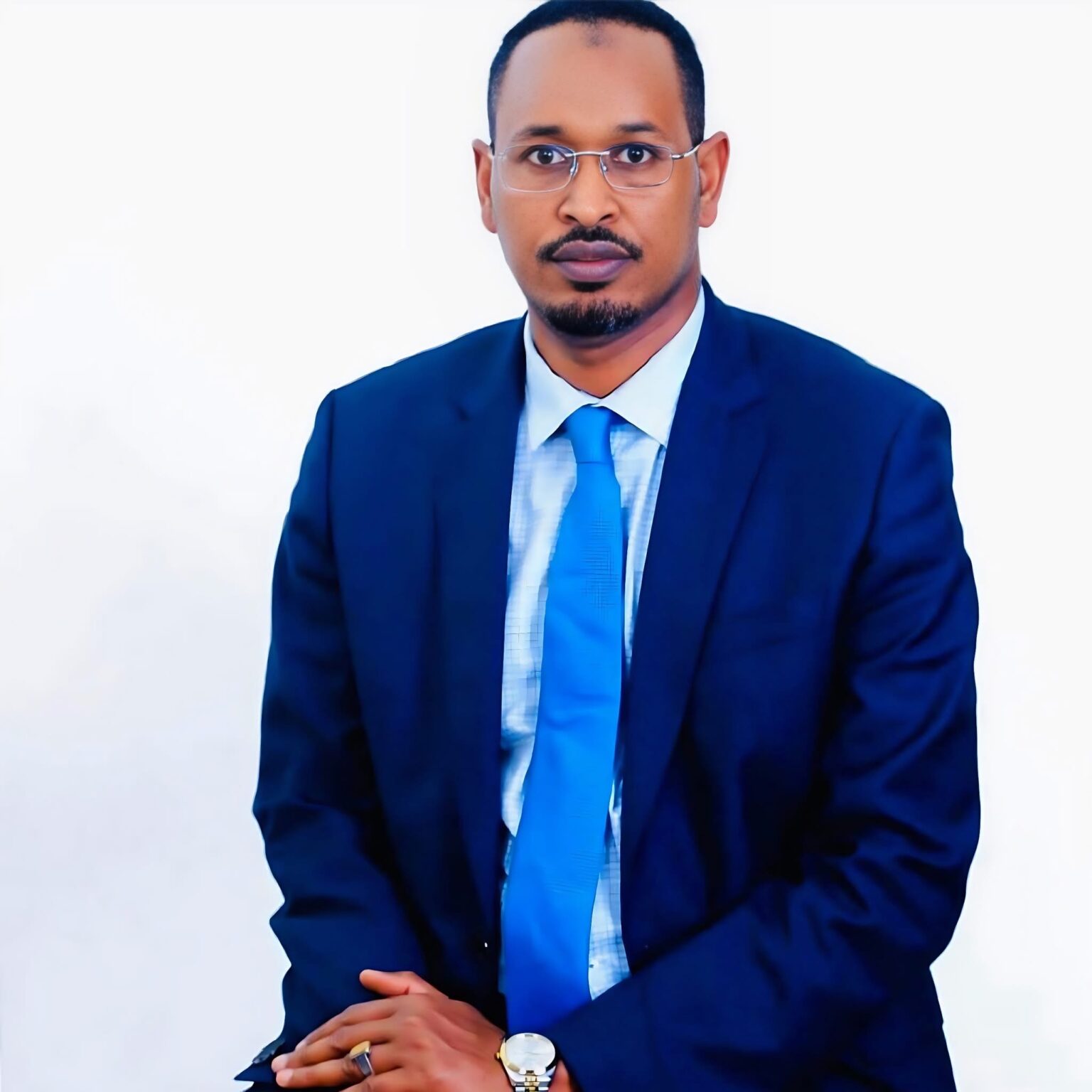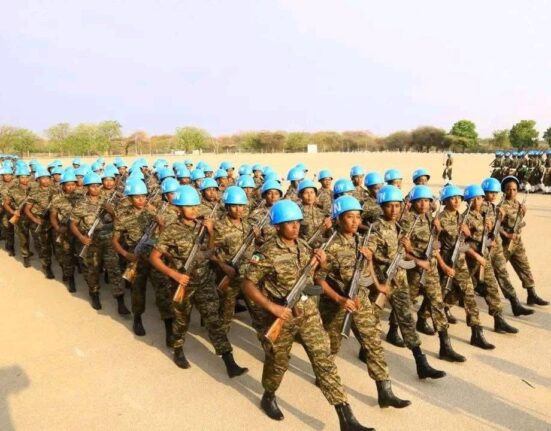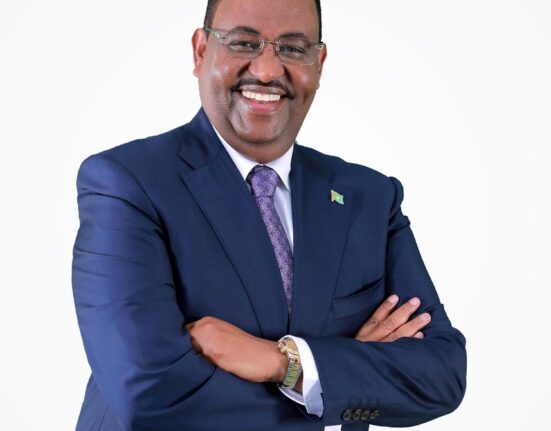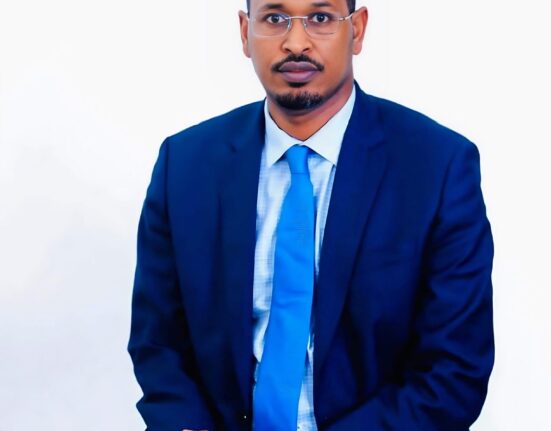By Abdirezak Sahane Elmi
In the long and tumultuous arc of a nation’s history, there emerge epochs in which contradiction itself becomes the defining narrative, moments when a country’s soul is torn between self-interest and self-preservation. Ethiopia now stands precisely at such a moment: a historical crossroad where two contending currents, the seekers of power and the defenders of principle ,collide in a contest that will determine not merely who governs, but whether the state endures.
On one side of this great divide are the power seekers , the architects of calculated chaos. They cloak their ambitions in the rhetoric of democracy, reform, or federal justice, but their real compass is personal ascendance. Their struggle is not waged in the name of the nation but in the name of opportunity. They invoke the people while subverting their hopes, and speak of freedom while entrenching division. Theirs is a theatre of political acrobatics, marked by fluctuating loyalties, fabricated grievances, and a perpetual hunger for recognition.
On the other side stand the defenders of principle, those who, despite the storms of discontent, remain steadfast in protecting the state’s survival and the people’s collective dignity. For them, sovereignty is not a mere political arrangement but the moral architecture of national being. They understand that once the foundations of unity are eroded, the entire edifice of the nation crumbles. Their struggle is not for prestige but for posterity; not for possession of power, but for the preservation of purpose.
Thus, Ethiopia’s political drama unfolds as a dialectic of contradiction, power against principle, ambition against endurance, self against state. Both claim legitimacy; both demand recognition. Yet history will distinguish between those who fought for office and those who fought for order.
The Transformation That Deserves Recognition
Even amid Ethiopia’s political contradictions, an honest and discerning observer cannot deny that a remarkable transformation is unfolding, one that is both structural and spiritual in its national magnitude. Beneath the noise of political contention, the machinery of modernization continues to move with purposeful momentum, redefining the very architecture of the Ethiopian state.
The current government, under the leadership of Prime Minister Dr. Abiy Ahmed, has charted a multidimensional reform agenda that transcends rhetoric and manifests in visible, measurable progress. The Grand Ethiopian Renaissance Dam (GERD) — now nearing completion, stands not merely as an engineering marvel but as a monument to sovereignty, resilience, and self-reliance. It symbolizes Ethiopia’s defiance of dependency and its assertion of energy independence, a generational achievement that will power both the nation’s economy and its pride.
Parallel to this, Ethiopia’s Food Self-Sufficiency Program, particularly the national wheat production initiative, has begun to reverse the country’s historical dependency on imports. Once an emblem of aid reliance, Ethiopia is now emerging as a potential net exporter of grain. This transformation in agricultural policy marks a profound shift toward economic sovereignty and rural empowerment, a revival of both soil and spirit.
The visionary Green Legacy Initiative, personally launched and championed by Prime Minister Abiy Ahmed, has evolved into one of Africa’s most ambitious environmental undertakings. With billions of trees planted across all regions, it is not only combating deforestation and climate degradation but also cultivating a new ecological consciousness rooted in civic duty and national identity.
Urban modernization has also entered a new epoch through the City Corridor Developments, transforming the landscapes of Addis Ababa and regional capitals alike. These projects are crafting interconnected, vibrant, and livable cities, engines of commerce and culture that mirror Ethiopia’s aspiration to harmonize tradition with modernity. Simultaneously, tourism revitalization projects across historical and natural heritage sites, from Lalibela to Bale, from the Somali plains to the Tigray highlands, are repositioning Ethiopia as a global destination where history, spirituality, and nature converge.
Institutional reforms have advanced with comparable vigor. The security architecture of the state, encompassing the Ministry of Defense, the Federal Police, and the National Intelligence Service — has undergone structural reorganization, professionalization, and digital integration. This reform has restored coherence, discipline, and technological capacity to Ethiopia’s national security framework, ensuring both internal stability and regional deterrence.
Complementing this, the digitization reform and the creation of One-Stop Service Delivery Centers (MISOB)represent a quiet but revolutionary shift in governance, replacing bureaucratic inertia with efficiency, transparency, and citizen-centered service. This digital leap, coupled with the Homegrown Economic Reform Agenda, has begun to realign Ethiopia’s macroeconomic policy with global competitiveness while preserving domestic resilience.
In the industrial sphere, Ethiopia’s horizons are expanding eastward and outward. The newly inaugurated Ogaden Gas Refinery marks a historic breakthrough in energy industrialization, transforming the Somali Region from a resource frontier into a productive economic hub. Alongside it, new mega-projects such as the Bishoftu International Airport, envisioned as Africa’s next aviation gateway, and the Godey Fertilizer Industry, promise to anchor future growth in both connectivity and productivity.
Furthermore, the government’s announcement of a 1.5 million housing development project symbolizes an audacious commitment to social transformation, addressing not just infrastructure but human dignity, urban equity, and generational opportunity. These housing schemes, coupled with Ethiopia’s ongoing industrial parks and agro-processing zones, illustrate a government intent on building a nation that works for all, not merely for a privileged few.
Taken together, these initiatives constitute not a patchwork of isolated policies but a coherent national strategy, one that seeks to harmonize development, stability, and sovereignty under a unifying vision of renewal. Ethiopia today is not the stagnant polity of yesterday; it is a laboratory of transformation, struggling, yes- but progressing with unmistakable resolve.
What emerges from this transformation is a new political ethos: that the measure of leadership lies not in rhetoric but in results, not in populist posturing but in the patient construction of a durable state. The reforms underway, from infrastructure to ideology, from governance to green growth signify that Ethiopia’s rebirth is not a mere dream but an unfolding reality.
Yet transformation cannot be measured solely in concrete and steel. True transformation is moral and intellectual , it is the ability to translate material progress into social harmony and political maturity. For this reason, internal conflicts must now take priority. No nation can build bridges of development while its internal fractures deepen. National dialogue must be elevated from ceremonial discourse to existential necessity, a deliberate and inclusive process aimed at healing, not at political theater.
The government must invest in politics with the same determination it invests in infrastructure. Political trust, civic participation, and reconciliation are the foundations of durable progress. Equally, the ruling party must look inward: a movement plagued by opportunism and internal betrayal cannot be the vehicle of national renewal. Reforming the system begins with cleansing its own ranks.
The philosophy of Medemer, synergy and unity through cooperation — must not remain a poetic slogan. It must become the operational ethos of governance. When a political house is divided by self-serving factions, no amount of external achievement can redeem it. A party infiltrated by self-centered actors cannot fulfill a collective national destiny.
The Politics of Trust and Strategic Alliance
One of the gravest lessons of history is that nations do not perish solely from external enemies, but from the misjudgment of internal allies. Ethiopia’s political decay has often been accelerated by misplaced trust — the elevation of opportunists, the empowerment of double-faced elites, and the reliance on individuals whose loyalty to the nation is negotiable.
Trusting those whose ambitions contradict the nation’s vision is a form of political suicide. Power bestowed upon ideological traitors becomes the seed of institutional collapse. The ruling Prosperity Party, and indeed all governing actors, must critically re-evaluate their alliances, not through the lens of convenience but through the prism of conviction. The moral geography of alliance must be redrawn — to separate those who stand for Ethiopia’s survival from those who merely stand for themselves.
Strategic trust must be earned, not granted. Ethiopia’s political future depends not on the multiplication of allies, but on the purity of allegiance among those entrusted with leadership. The wisdom to discern the faithful from the fickle will determine whether today’s political awakening becomes tomorrow’s historical tragedy.
A Call to Conscience and Collective Responsibility
Ethiopia’s greatest battle today is not fought with weapons, but with words, not on the battlefield, but within the corridors of conscience. It is a struggle for the moral imagination of a nation that risks consuming itself in the fires of ego and fragmentation.
Politicians, scholars, clerics, and citizens must now face an immutable truth: we possess only one Ethiopia. If we destroy it, there will be no substitute, no second chance. Dignity, sovereignty, and peace are indivisible, lose one, and the others will vanish. Rebuilding a collapsed nation is not a generational task; it is an intergenerational wound that bleeds through time.
We need not look far for cautionary examples. Somalia’s state implosion, Sudan’s civil unraveling, Yemen’s humanitarian catastrophe, and Syria’s endless devastation, all stemmed from a shared pathology: arrogance, impatience, and the illusion that violence could yield political virtue. We must learn not from their suffering superficially, but analytically, studying the anatomy of their collapse and the psychology of their leadership failures.
No political ambition has ever triumphed through civil war. One may destroy an adversary, but not the consequences of destruction. One may kill, but cannot resurrect. True leadership is not measured by how many enemies one defeats, but by how many lives one preserves. Ethiopia must therefore reorient its politics from reaction to reflection, from confrontation to conversation.
Opposition must mature beyond hostility into constructive patriotism, an opposition that critiques with purpose, envisions with responsibility, and contests with belonging. To oppose without belonging is to weaken the state; to belong without questioning is to weaken democracy. The synthesis of both is what Ethiopia urgently requires.
The Imperative of National Reconciliation:
Reconciliation is not a luxury of peace; it is the precondition of survival. The possibility of reconciliation between the power seekers and the defenders exists, but it will require a collective awakening grounded in realism and rationality. Emotional politics has brought only exhaustion; ideological rigidity has yielded only fragmentation.
To reconcile is not to surrender; it is to rise above the narrowness of self-interest and perceive the larger architecture of the nation. Realism demands that both camps recognize their mutual interdependence: power without principle leads to tyranny, and principle without pragmatism leads to paralysis. Ethiopia needs both, guided power and principled pragmatism — balanced by a moral vision of nationhood.
The ruling elite must remember that development without dialogue is unsustainable, and opposition actors must realize that rejection without reasoning is sterile. Reconciliation begins when dialogue replaces denunciation and shared responsibility replaces selective blame.
The Verdict of History
History, impartial and enduring, will one day render its verdict. It will separate those who pursued power from those who preserved the nation. It will remember not the noise of demagogues, but the silent perseverance of patriots. If rationality prevails over resentment, and wisdom over wrath, Ethiopia may yet transcend its contradictions. The nation’s destiny will not be decided by temporary triumphs of factions, but by the timeless courage of those who refuse to give up on its promise.
Let us therefore rise above these contradictory struggles, not as rival camps but as custodians of a civilization too ancient to be squandered and too sacred to be surrendered. The task before us is monumental but not impossible: to turn conflict into conversation, ambition into service, and history’s pain into a new chapter of national rebirth. Only then will Ethiopia cease to be a theatre of contradiction and become, once again, a living testament to resilience, unity, and enlightened destiny.
By Abdirezak Sahane Elmi
Former Government Official and Geopolitical Analyst.
Addis Ababa, You can reach:
Abdirezaksahane15@gmail.com








